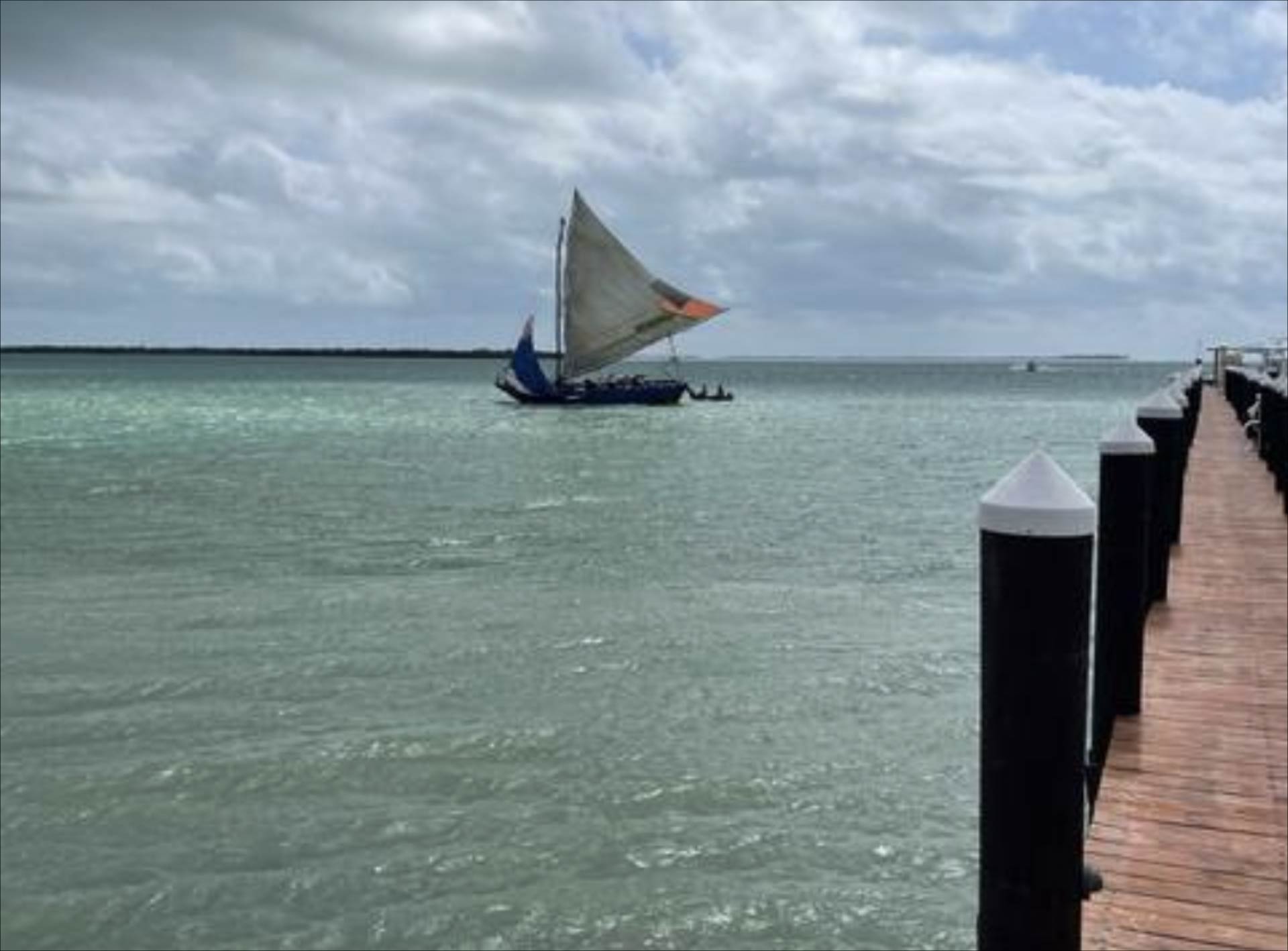
A group of between 100 and 150 Haitian migrants arrived abruptly on the shores of the Florida Keys. This time, specifically, he went to Summerland Cay, about 32 kilometers from Key West. The photograph, released by the Monroe County Police Department (which includes all the Florida Keys), shows how the huge group landed from a sailboat in the private courtyard of a house overlooking the sea.
Once they arrive in Florida, Haitian migrants who come without a visa go through an investigation process by which they must demonstrate that they left their country of origin because they have a “credible fear.” If they prove it, they can receive political asylum in the United States and thus regularize their immigration status. Otherwise, they are deported.
It is unknown whether this boat came directly from Haiti, or if before arriving in the United States they made a stop somewhere else in the Caribbean. Local Florida press confirmed with authorities in Haiti that two boats, similar to the one seen arriving in Summerland Cay, left the northwest coast of Haiti on Tuesday of last week. They also indicated that more boats left the area over the weekend to Florida, so it would be expected that more migrants would arrive in the coming days.

On March 6, a group of 356 people from Haiti arrived in Cayo Largo in a boat that was intercepted by the US coast guard about 200 yards from the coast. 158 migrants swam into the sea to reach the coast, managing to touch American soil and thus begin the migration process.
In addition to arriving in Florida, many Haitian migrants are arriving in Puerto Rico. According to the customs and border control department, since October 2021, 571 Haitians have been prosecuted on US territory following illegal arrivals. The vast majority did so by arriving at Mona Island, in Puerto Rico.
But these official numbers only count those who are in the process of political asylum. The actual number of people arriving on these shores is much higher. In just four boats that arrived last November in the Florida Keys, there were 700 people from Haiti.
The situation in Haiti is extremely fragile. Gangs have taken control of the streets after the assassination of President Jovenel Moïse eight months ago. To this we must add the 7.2 magnitude earthquake that occurred in September, which left at least 2,000 dead. Political instability is absolute, so there is no economic or security policy in the country to try to get out of the crisis.
Last week the country's doctors went on strike demanding that their colleague, Acting Prime Minister Dr. Ariel Henry, do something to combat insecurity in the country. This strike is in addition to a shortage of workers in several industries and the strike by university professors that began after the murder of Professor Jacques Faubert Etienne.
Keep reading:
Últimas Noticias
Debanhi Escobar: they secured the motel where she was found lifeless in a cistern
Members of the Specialized Prosecutor's Office in Nuevo León secured the Nueva Castilla Motel as part of the investigations into the case

The oldest person in the world died at the age of 119
Kane Tanaka lived in Japan. She was born six months earlier than George Orwell, the same year that the Wright brothers first flew, and Marie Curie became the first woman to win a Nobel Prize

Macabre find in CDMX: they left a body bagged and tied in a taxi
The body was left in the back seats of the car. It was covered with black bags and tied with industrial tape
The eagles of America will face Manchester City in a duel of legends. Here are the details
The top Mexican football champion will play a match with Pep Guardiola's squad in the Lone Star Cup

Why is it good to bring dogs out to know the world when they are puppies
A so-called protection against the spread of diseases threatens the integral development of dogs




